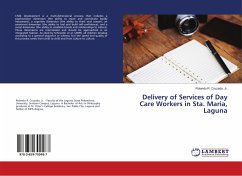Primary health care is a discourse in the health for all slogans to the underdevelopment countries. In Bangladesh is supposed to be a public responsibility, and until recently the government has tried to provide basic services directly through its own bureaucracy. However, the public sector faces acute problems in meeting the growing needs of urban population, especially the poor. In recent years, new institutions such as partnerships with not-for-profit private organizations are sought to improve the access and quality of primary care. This paper highlights the present condition of urban primary health care services & project, UPHCP in Bangladesh especially in Sylhet region. It analyzes the accountability relationships among different stakeholders involved in the project and cost effectiveness of contracting out. Also how the ideas and reality actually go on. The paper finds that the accountability relationships in UPHCP are not transparent, and the programme is costly in terms of human resources because of multiple principals and agents involved compared to direct government provision.
Bitte wählen Sie Ihr Anliegen aus.
Rechnungen
Retourenschein anfordern
Bestellstatus
Storno








